ASCI guidelines will have a ‘Dampening Effect’ impact on un-paid brand collaborations
India’s influencer market is estimated at $150 million in revenues per year and is showing double digit growth according to digital marketing agency AdLift. The Advertising Standards Council of India (ASCI) has launched the final iteration of its Influencer Marketing guidelines that focuses on disclosure of paid collaboration by influencers. To learn more about the guidelines, you may read our story about the draft influencer guidelines or visit https://asci.social/guidelines to read the detailed guidelines.
Speaking about the guidelines, Subhash Kamath, Chairman, ASCI and Chief Executive Officer, BBH & Publicis Worldwide India, said, “The followers of influencers have a right to distinguish between organic content and paid content. These guidelines will bring transparency and trust in influencer marketing.”
Manisha Kapoor, Secretary General, ASCI, added here, “In February 2021, we had put out the draft influencer guidelines in the public domain. Anyone with a point of view could share it with ASCI. We had a lot of industry bodies write to ASCI and overall there was a very positive feedback to the guidelines. First of all, the guidelines had been created with a very collaborative approach. We took feedback from influencers, agencies, digital platforms and there were some suggestions, clarifications, fine tuning and those were the nature of most of the changes. The influencers have been most accepting of these guidelines. They understood that they have a large impact on advertising and if they continue to grow it should be on the foundation of transparency and responsibility.
ASCI’s influencer guidelines are comprehensive and cover all kinds of brand collaborations paid as well as unpaid (barter). “We wanted the rules to be useful and fair to everyone,” remarked Kapoor.
Dhruv Chitgopekar, Co-Founder & CEO, BigBang.Social, commented, “Influencer marketing is growing by leaps and bounds. It started off as a guerilla marketing tactic as was a sub-section of marketing plans and strategy. Now it is being leveraged by marketers in bigger ways. The industry is growing in scope and three cohorts of brands are leveraging influencer marketing strategies. First, there are the brands which are at the top of their game, next are the massive number of SME organisations that are coming into digital and the sexiest of the lot are direct-to-consumer brands, which are well funded and built on disruptive models.”
Many in the industry expressed concerns that the need for disclosure in the guidelines would impact earnings of Influencers.
Content Creator, Influencer and Actor Dolly Singh, remarked, “There is a mentality as an audience to avoid watching ads. I have seen a dip in my engagement and views when it is a paid partnership post. However, we should give people the choice whether they want to watch something or not. My job is to create content irrespective of whether it is branded content or not. Some influencers don’t bother with creating good content when it comes to brand collaborations and their audience knows it as well. I think the power of influencer marketing lies in the ability to create branded content that people want to watch.”
Chitgopekar opined, “When companies like mine create plans for clients, we account for a ‘dampening factor’, where we do mention that the engagement of the post may reduce by 20-30% if it has a paid collaboration tag. We try to educate brands that this happens. If a consumer is being communicated that they are being sold to and watch the content anyway then that combination of psychology and transparency is going to drive better outcomes for brands.”
Many fledgling influencers who are not affiliated with a large agency may not be able to produce content that strictly follows the protocols set up by ASCI. That’s why the watchdog is offering an advisory service that allows influencers and advertisers to discuss the creative before they produce it potentially saving them lakhs of rupees from pulling down the content after a complaint.
More Reform Expected
Avinash Joshi, Chief Operating Officer, Natter, said, “The impact of the ASCI influencer guidelines will be good as consumers will know if a post is organic or sponsored. Gifting, barter, contest/ giveaways, unboxing, reviews and other kinds of un-paid collaborations are part of the ASCI guidelines. But it gets slightly dangerous as certain influencers and brands may be able to work around these guidelines and float content that is sponsored without the appropriate disclosure. There are surely ways to go around the guidelines, and work for the brand.”
“The problem is that in the age of social media, anybody is an influencer. Even with my limited following of marketing professionals on Twitter and LinkedIn, I can be an influencer. My influence may not work for a B2C product, but may benefit B2B businesses if I say an agency or brand is the best. Everybody is creating content on social media and if you look at Instagram, there are a group of micro influencers with a following between 2,000 and 50,000 who have started making money. Even though they are earning Rs 15-100 per post, they are professionally involved in this business. When you look at influencer marketing as a media unit, brands have to understand the underlying media effects. For example, instead of doing a paid collaboration with a fashion influencer, where 50% of the followers are males and are not interested in fashion, brands may want to collaborate with several micro influencers and create an advocacy. There is also the question of unintended brand exposure. For example, in many unboxing videos where the influencers have bought the products, the e-commerce company might be Amazon or Flipkart whose branding appears in the video. It would be interesting to see how these instances are tackled.”
Neel Gogia, Co-Founder, IPLIX Media, said, “Every new initiative will face questions on its practicality. That debate is necessary to create a sustainable solution. Hence, in my opinion, the current recommendations might not be applicable to every influencer or every tool of influencer marketing. The lines are a little blurred. For instance, a non-monetary association under which an influencer shares an unbiased product review will be labeled as an AD, leaving consumers in a tough spot. This will be difficult to implement for a tech or an auto influencer as they cannot buy every product for review as they are of high monetary value, and in fact, not all the reviews are positive as well so they cannot be labeled as an ‘ad’.”
He further said, “Furthermore, organic and value-added content creation with genuine product integration is being given priority by the brands, agencies as well as influencers at the moment and the current recommendations might not be aligned with this objective. For a YouTube content creator with long-format vlogs, labeling the entire integration section as an AD will lead the audience to ignore the content even if it is adding value to them. A mention of 5-10 seconds should suffice rather than a full-length mention. I believe platform labels like ‘Includes paid promotion’ and ‘Paid partnership with’ on YouTube and Instagram, respectively, offer that clarity for sponsored posts. This is sufficient to highlight that the integration is paid. However, additionally, the creators can put a supplementary hashtag to make it more visible. So, we will have to wait and watch how this unfolds.”
According to Aditi Kanakia and Devanshi Sodhani, Founding Partners, Abridge Entertainment Ventures, “The guidelines will change. We live in an ever evolving world. 10 years back, we wouldn’t have imagined that products would be advertised on social media and today, it is a very common form of advertising and sizeable budgets are allocated to influencer marketing. It will take some time for all players involved – brands, agencies, influencers, etc. – to understand and implement these guidelines, post which we’ll see newer changes regularly as the platforms evolve. Like Instagram recently enabled users to share statistics of Reels and Instagram Live, this information was not available to us up until 10 days back.”
“With new platforms being added, new features being added on existing platforms and new technology coming into play influencer marketing is on its way to become a structured industry. And as of now, implementing these guidelines will make both influencers and brands more responsible towards the content they are putting up for viewers to consume. And yes, these guidelines will change regularly to ensure transparency and clear flow if information to viewers. And like it was mentioned in the announcement, this is just Phase 1, a lot is yet to change,” Kanakia and Sodhani felt.
Dhruv Chitgopekar, CEO BigBang.Social and Co-Founder Collective Artists Network said, "We must acknowledge that what we're seeing with the guidelines is actually only phase one, offering more like a sense of direction on what we want to and could do. I definitely think they will constantly evolve too, just like the industry will and is. There will be new learnings. There will be probably issues and concerns, just as it was in the case of the advertising industry, which had to learn with the times and evolve, to deal with ever changing consumer tastes and mediums- especially since the nature of the social political environment around us has dynamically changed as a country and continues to develop. The same thing will happen with digital influence and influencer marketing too.
Multiple agencies, communities, creators, and brands have given their feedback to these guidelines, to ensure that they are a balance between setting the required standards and setting adequate transparency expectations, with equal mindfulness being given to not curtailing creative freedom beyond a certain point.
These guidelines will definitely causate a change in the way influencers have been operating and encourage them to be a bit more transparent. Influencer marketing has been extensively utilized for the last two to four years, and especially in the last year and a half in the lockdown, by brands of all nature and scales of operations. No change is easy, but, once influencers start embracing it, I think we will see a lot more value being derived out of it and appreciation for the entire concept of marketing via influence."
Aakash Ranison - Sustainable and Responsible Travel Influencer, Climate Change Activist, and Author said, "What worries me is the current political situation of the country and the control over social media platforms. Influencer marketing isn't new in India and the sudden interest in regulating this industry in between a pandemic isn't a good sign. It clearly shows where this is leading to."
Varun Duggirala - content creator, podcaster, entrepreneur, and personal development pundit said, "From a broad framework perspective this is a step in the right direction for the influence/creator space. It helps move towards a system of shaping the way this industry functions in a way that balances all ends of the spectrum - creativity, ethics/consumer safety and business.
I would hope there will continue to be an evolving process to these guidelines. This will keep it relevant for the time at hand as well as the evolving nature of the platforms and the creative index of creators in the creator econom."
Aakanksha Gupta, CEO, and Co-founder of The Other Circle said, "The guidelines will definitely have to keep evolving, especially since markets across the world and consumer behavior across the world are changing ever so rapidly. There cannot be a 'one-size-fits-all' formula to any marketing initiative anymore. The same is the case with influence. People will consume different kinds of content differently as time goes by. Also, we need to understand that guidelines will also differ basis the socio-ethnic dynamics across our global villages too - hence mindful creation, suggestion, and implementation are key.
There is a pressing need for such guidelines to existing, from a best practice lens, to democratize the process and offer performance and disclosure insights when planning such an outreach. Especially since there are a plethora of international brands that are making an entry into our domestic market, we need a manual to better understand how to interact with influencers and this move by ASCI and Big Bang Social a move of transparency in that step."
Rajni Daswani, Director , SoCheers said, "The guidelines are a good guardrail in the industry that has been unregulated so far. The fact that the guidelines are not extremely stringent and do rely on influencers to see that they do justice, leaves room for brands to explore ways to circumvent around it. A lot will depend on how influencers & brands adapt to it. Many brands are averse to the whole #Ad & #Sponsored and may now start drawing parallel compares to paid media, which might see the investment in influencer marketing take a slight hit, after the phenomenal growth year that it has had.
These guidelines will be like a double-edged sword for creators as well. While they will get a lot more say in putting out content that will work on their pages, influencers/creators who are doing a lot of branded content might see a hit in their engagement & reach numbers. Quality content will continue to win nonetheless. For brands, would suggest to give influencers a little more freedom in designing the content in a way that will bring out the brand benefits, as well as get content to perform better on their channels."
Ritesh Ujjwal - CEO, Co-founder - Kofluence said, "These new set of guidelines are great for the influencer marketing industry. With a steep rise in internet users consuming advertising on various digital platforms, this was need of the hour. As far as following the guidelines goes, I strongly believe that it always pays in the long run, if you are transparent. People these days are well informed, therefore, influencers should establish trust with their followers, and for that transparency is the key. Adding a simple Paid Partnership with X brand will prevent the follower base from feeling deceived, with an additional bonus of no bashing in the comments section."
Creation of Responsible Content
Himanshu Arya, Founder & CEO, Grapes Digital, noted, “Influencer marketing has become an integral part of the communications and marketing campaigns of brands and has evolved a lot in the past few years and this is why the guidelines were the need for the hour. It will facilitate digital media to serve their consumers unequivocally and make influencers more responsible towards the content they post. Going forward, ASCI aims that the industry would become more transparent by disclosing their collaboration with the brand as an ad, sponsored, collaboration, gift or partnership. This will benefit the industry by avoiding deceiving ads, and protect consumers from misleading, and would ensure that the target audience/ consumer is aware whether the post they are viewing is paid or unpaid.”
Further Arya opined that this will not impede influencers’ creativity, popularity, reach or limit them experimenting with a different set of content because nowadays consumers are smart enough to make out the difference between a material connection and an organic post. “It is a welcome change. However, a lot will depend on influencers as well and how they will abide by the new guidelines. The influencer industry is huge, and there are a massive number of nano-micro influencers. ASCI is a self-regulatory body and it can’t punish/ summon people who don’t resort to the guidelines. There is a greater need to aware of micro and nano influencers. I will call it the first step towards making transparency and trust the ethos of influencer marketing,” he added.
According to Vipul Talwar, Co-Founder, Voxxy Media, “With the growing outburst in the trends and ways of influencer marketing, the ASCI guidelines are a welcoming move that serves in the best interest of all the key stakeholders-advertisers, influencers and consumers. The idea of content being organic or sponsored stands no more in a grey area and also builds credibility for the brand and the influencer.”
He pointed out that many Influencers globally and some in India have already been implementing hashtag #AD in their captions for branded posts and have received positive response without hampering the overall reach and or impact of their content. These guidelines have been in the traditional media for years and have managed to build trust between advertisers, agencies and customers, the same can be seen with the new age media like ours in influencer marketing as well.
Pranav Panpalia, Founder, OpraahFx, an influencer marketing and talent management company, added here, “It has been a norm in the western countries for influencers and brands to follow very stringent rules in terms of communicating to their audiences, the nature of their brand promotion. With ASCI establishing similar guidelines in India, I believe it will enable advertisers, brands, and creators to be transparent with their audiences. This also helps elevate creators' reputation in terms of being honest with their audience set.”
Talking about the guidelines aiding brands to connect to their exact audience set, Panpalia said, “The guidelines will help brands garner very targeted audiences. How? Giving a disclaimer of a brand being promoted (prior to the content), helps viewers make an upfront choice about whether they want to continue to consume the said promotional content. Continuing to consume such content simply implies that s/he indeed is interested to listen to the brand’s promotional pitch.”
“Responsible marketing is need of the hour, and the ASCI guidelines for influencers and content creators will just fuel it further. With influencers now exercising due diligence before promoting any product/ service claims, and maintaining absolute transparency about the material connections with the brand, helps consumers make informed decisions. Since digital media caters to a much more aware audience set, keeping it real is the only way to establish q human connection with them,” he concluded.
Kunal Kishore Sinha, Co-founder & COO, ClanConnect, commented, “Having understood the fast-growing reach and power of influencers, ASCI is unveiling the set of guidelines that will majorly shape the future of sponsored posts and influencer-brand collaborations in India. The set of rules and regulations will go a long way in regulating the vast and multi-dimensional world of influencer marketing. The guidelines have been finalised after extensive deliberation and consideration of feedback and suggestions sent in by several industry players. Going forth, consumers can expect much more transparency as they navigate through the social media universe. On our part, we are geared up to guide influencers through the intricacies of the newly-launched guidelines, helping them meet all the requirements so they can focus on what they do best – create impactful content.”
Ankit Agarwal, Founder, Do Your Thng, a branded content marketplace, said, “This was a long time coming. The blurring of the line between ads and simple user-generated content needed to be corrected. Users not only have the right to know the difference between the two, they all but demand it. Disclosure labels are unquestionably a step forward in that direction. Besides helping bolster the trust audiences were increasingly hemorrhaging in content creators, the guidelines will hold brands and marketers more accountable. I am gratified ASCI have moved the needle in organising a niche where entropy was just about beginning to reign supreme.”
Working with the brands and creators, we’ve often noticed cases of false & misleading advertising. Post regulation, the guidelines will compel a creator or an agent to proof read all the brand claims and thus talk only about the competent points. ASCI guidelines will safeguard consumer purchasing power and make influencers more responsible. I feel it’s undoubtedly a right step towards ensuring a better future for the influencer marketing world."
For us as an agency also it makes life easier as brands that work with us put in their trust to find the correct influencer pool for them and with these guidelines in place it will only help us in finding what is best for the brands. It would lead to the development of a social media advertising environment that is more conscious. Also, one must understand that the new regulations do not restrict creativity but only promote trust and comprehensibility in the world of paid promotions."
Techno Gamerz, India’s Youngest Gaming YouTuber with 16M subscribers, said, "I appreciate ASCI’s efforts in putting up these guidelines. It being a self-regulatory guideline, I hope all influencers follow them as the main aim of it is to bring in more transparency in the digital world. With this becoming the industry norm, I believe that many brands would now understand the importance of being transparent about paid promotions and not request influencers to remove/hide the ‘sponsored’ or ‘paid partnership’ tags. We finally have the detailed guidelines, now we all (influencers and brands) must make sure to follow them."


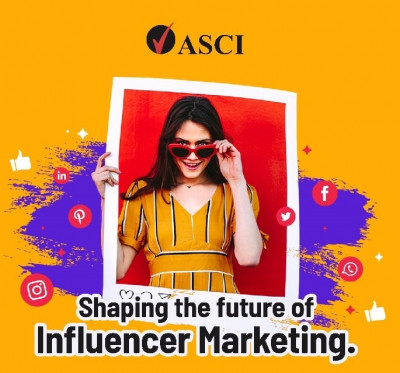

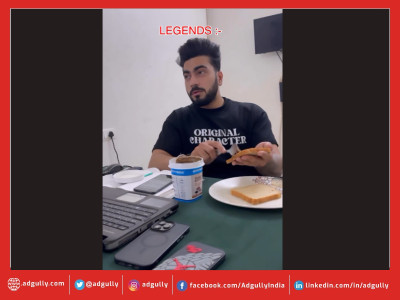



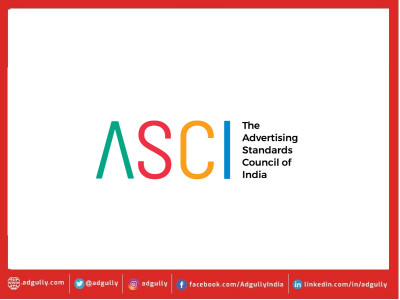


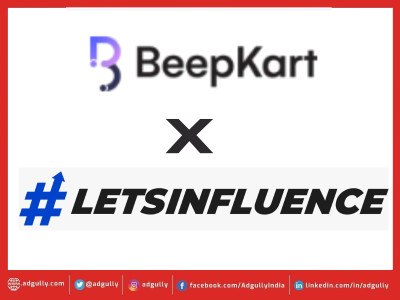

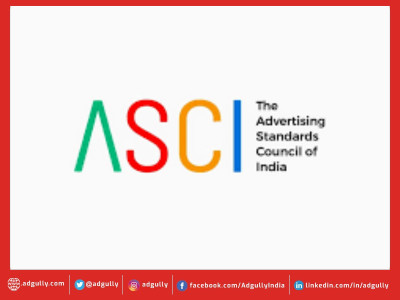

Share
Facebook
YouTube
Tweet
Twitter
LinkedIn